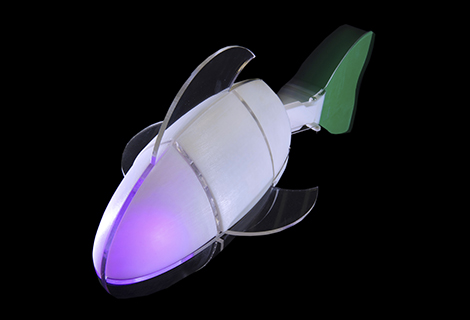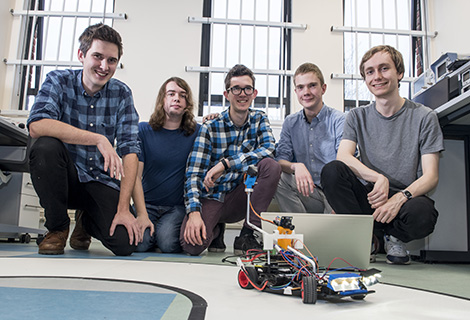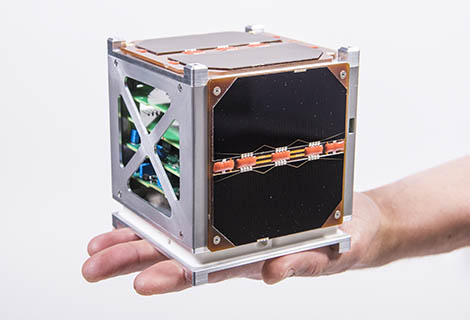The University of Southampton is delighted to announce that leading investment management firm Winton has agreed to support academic prizes for students in Computer Science for a further three years.
Wintonâs commitment - made initially in 2010 - recognizes the high quality of student achievement in Computer Science, as well as reinforcing the importance of prizes such as this in building strong recruitment to the subject area and also to the University of Southampton.
The University of Southampton has a long tradition of excellence in Computer Science and draws leading students from the UK and around the world. In 2013 the department was awarded the UKâs only Regius Chair of Computer Science, which is currently held by Professor Dame Wendy Hall. Over the last 20 years the department has made fundamental contributions to the discipline, including the development of agent technologies, data science and cyber science, as well as the foundation of Web Science as an academic discipline. Computer Science graduates from Southampton also have an outstanding reputation for graduate employability â holding top place in the Good University Guide 2017.
Wintonâs philanthropic support will enable two prizes in the undergraduate programme: for the top student in Computer Science Year 1; and the top final-year student on the four-year MEng programme in Computer Science. The third annual prize will be awarded to the top student on the one-year postgraduate MSc in Software Engineering.
Jamie Read, who won a Winton Prize in 2016, commented: âI was very pleased to receive the Winton Prize on the basis of my results in the first year of my degree course. It is a welcome acknowledgement of the work involved in undertaking this degree programme, as well as a great encouragement to maintain this high level of achievement in the future.â
Christine Simpson, head of Academic Engagement at Winton, said: âEvery year, we are so impressed by the quality of the students at Southampton, and we are delighted to renew our sponsorship of these prizes to reward academic excellence in Computer Science.â
âWinton are one of the worldâs leading companies and it is a great honour for us that they are continuing to support student achievement in Computer Science,â said Professor Paul Lewin, Head of the Department of Electronics and Computer Science.
âWe very much look forward to developing our relationship with Winton over the next three years and welcoming the company to ECS to work with our students.â


